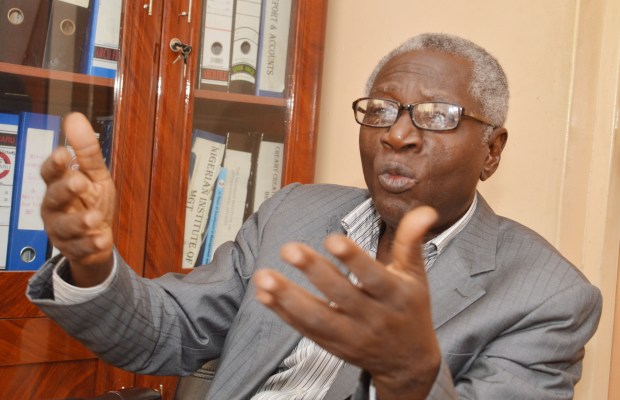By Pascal Oparada
The start of a new poverty narrative, the report by Washington-based Brookings Institute, an American research group on Think Tank Row, has drawn mixed reaction with the Nigerian government saying the statistics for the report came from the recession period.
But renowned economist, Henry Boyo, believes that the Brookings report only revealed the obvious and substantiated his position all along.
Boyo said in an interview with TheNiche that the Central Bank of Nigeria’s (CBN) policy of auctioning the dollar against the naira is the reason for the extreme poverty in Nigeria.
“You are there when the Central Bank of Nigeria auctions dollar against Naira. You don’t consider that as significant because you know that when you auction something you are going to expect the price to go higher.
“As long as Nigeria is busy auctioning the dollar against the naira, against its own currency, there is no arithmetic that would change that paradigm,” Boyo said.
He said the Brookings Institute Report was predictable and it was going to get worse because of the underlining fundamentals which policymakers refuse to acknowledge and address. He said more people would get poorer as long as the CBN pursues its dollar auctioning policy.
“We can point our fingers against the Central Bank and say how can you borrow money for 15 per cent and you know this money you don’t need it,” Boyo said.
He took a swipe at the government for ignoring its own Economic Recovery and Growth Plan (ERGP) and the Medium-Term Expenditure Framework (MTEF), which he says are supposed to underpin the budget.
“When the budget was passed and Budget was passed and Buhari threw a bait about the legislators, everybody started calling them thieves and forgot about the whole issue. The issue of ERGP and MTEF. These are all the things that are supposed to underpin the budget.
“It is so unfortunate because we are suffering as a result of ignorance. People have been sitting on top of nonsense being paraded as a monetary strategy,” he stated.
Boyo said what drives diversification is consumer demand and stated that as long as that demand continues to contract as a result of inflation caused by the Central Bank’s policy of auctioning the naira, the result would be extreme poverty.
“When the Central Bank is busy auctioning a foreign currency against its own, it is going kill you. How can the Central Bank auction the dollar in a market that is suffocated with naira? These are the realities,” he stated.
What Brookings Institute said
The report, which the Institute said was drawn from calculations from World Poverty Clock, said Nigeria has overtaken India as the country with the most extreme poor people in the world, followed by DR Congo.
The report said by May 2018, about 87 million people in Nigeria now live in extreme poverty which is about 45 per cent of the population as against India’s 73 million amounting to 5 per cent of its people.
By the report, almost one in every two Nigerian is living in extreme poverty, which is a condition according to the United Nations, is characterised by severe deprivation of basic human needs, including food, safe drinking water, sanitation facilities, health, shelter, education and information.
“What is more, extreme poverty in Nigeria is growing by six people every minute, while poverty in India continues to fall. In fact, by the end of 2018 in Africa as a whole, there will probably be about 3.2 million more people living in extreme poverty than there is today,” the report said.
According to the institute, the rate shows that Nigeria’s poverty thermostat shows poverty rate is rising while that of India is falling.
“Already, Africans account for about two-thirds of the world’s extreme poor. If current trends persist, they will account for nine-tenths by 2030. Fourteen out of 18 countries in the world— where the number of extreme poor is rising—are in Africa”.
The report further said between January 2016 and July 2018, about 83 million people have escaped poverty, based on the agreeable implementation of Sustainable Development Goals (SDGs).














